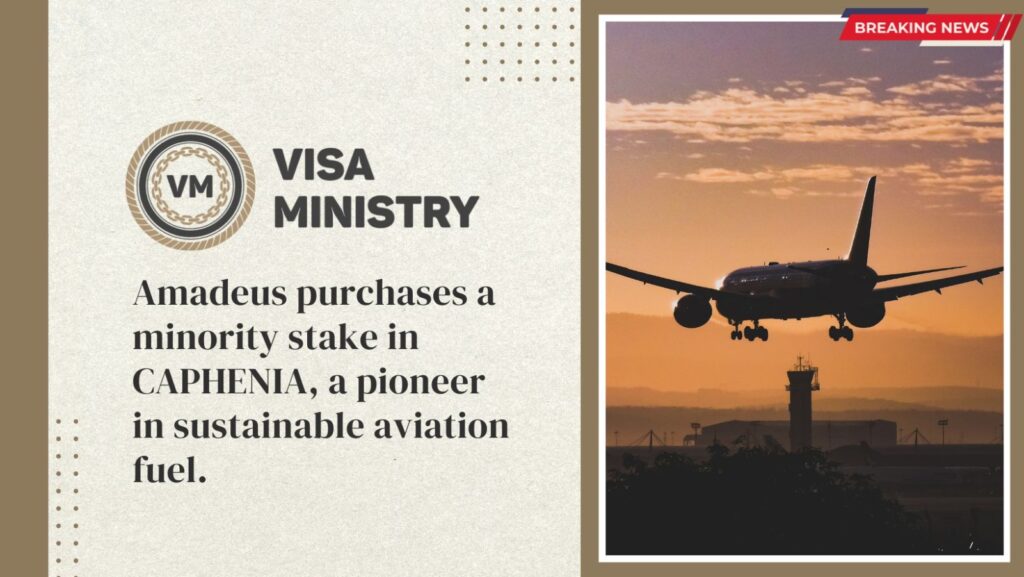Amadeus has purchased a small stake in CAPHENIA, a company that will create synthesis gas, the raw material for sustainable aviation fuel (SAF). The German-based company has created a novel method for producing SAF in a more cost-effective and scalable manner. The choice is a part of Amadeus’s larger commitment to assisting the travel sector in its transition to sustainable travel.
The investment will give Amadeus better insight into the difficulties facing the SAF sector, enabling it to further consider what part it can play in this crucial step of the industry’s journey towards net zero by 2050.
CAPHENIA has developed a novel method to create synthesis gas from a mixture of biogas, CO2, water, and energy. CAPHENIA is now in an advanced stage of development. This can be used to create a range of renewable fuels, with CO2 emissions reduced by up to 92% when compared to the value from fossil fuels. With 203 awarded patents, the company has successfully protected its Power-and-Biogas-to-Liquid (PBtL) technology in all pertinent main markets globally.
“Our process is affordable – using one sixth of the electricity needed for alternative SAF production methods – and scalable,” said Dr. Mark Misselhorn, Chief Executive of CAPHENIA. By 2028, we hope to offer large-scale production, bridging the gap between the existing supply and expected demand for SAF.
“For airlines, sustainable aviation fuel is the realistic long-term substitute for conventional aviation fuel,” Misselhorn concluded. A significant component that, when combined with other factors, may aid in achieving net zero targets is the technology of cost-effective, producible SAF.
The IATA Net Zero Emission project estimates that SAF has the potential to contribute 65% of the decrease in greenhouse gas (GHG) emissions necessary for the aviation industry to achieve net zero emissions by 2050. Along with carbon offset and capture (19%), operational efficiencies (3%), electric and hydrogen powered aircraft (13%), and operational efficiencies (3%), new technology is an important part of the future trip.
It is predicted that a global production capacity of 449 billion litres per year is required to achieve the 65 percent reduction in GHG emissions. SAF output in 2021 was only 125 million litres, or less than 0.1% of the required anticipated production capacity, to put things in perspective. Beginning production in 2019, CAPHENIA anticipates producing 10 million litres of SAF by 2027, increasing that amount to over 100 million litres by 2030, and more than one billion litres by 2035.
“At Amadeus, we are committed to supporting the shift to sustainable travel,” stated Suzanna Chiu, Head of Ventures. We keep an eye on market trends and advancements to assess the best means by which we can realise this goal, and we are excited to take action right now by investing in a cutting-edge SAF firm. The deal advances our sustainability approach by allowing us to view the industry from a different point along the value chain. We are taking proactive measures to hasten the process as the industry works towards its 2050 target of reaching net zero.
Source- Travel biz

